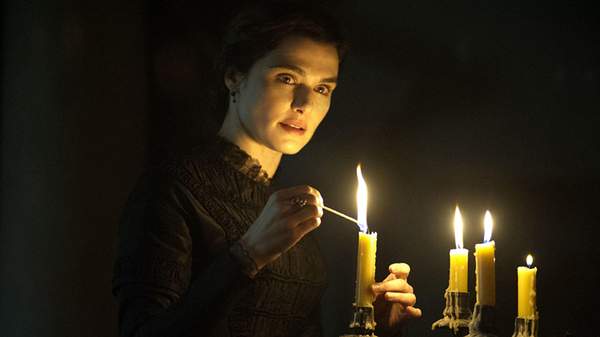Overview
Obsessing over mysteries is human nature. We're hard-wired to piece together puzzles, trawl through murky terrain and look for answers; in fact, you could say that's what life is all about. Gothic tales understand this. They take audiences to dark, strange, far-from-straightforward places, and as a rule we're more than willing to go along. They unsettle, unnerve and ooze with unease — and that's precisely what makes them so alluring.
These are the sensations conjured my My Cousin Rachel as it immerses viewers in a story of love, death, money and mistrust. For Philip (Sam Claflin), that's also the feeling he gets from the film's title character (Rachel Weisz), his cousin by marriage. When she arrives at the Cornish estate he'll inherit upon his upcoming 25th birthday, he's bubbling with anger and intent on vengeance, believing that she murdered her husband. And yet Philip soon finds himself mesmerised by the new woman in his life, even if he can't quite quell his suspicions.
A Gothic romance penned by Daphne du Maurier back in 1951 (and first brought to the screen one year later), My Cousin Rachel leans into its enticing climate of wariness; this is a movie where a stiff gust of wind leaves everyone shaken, and where flickers of candlelight cast telling shadows. Writer-director Roger Michell (Le Week-End) successfully bathes every frame of the film in tension, using his handsome period staging to further the mood. A grand old house in the English countryside — and one typically seen during the daytime, too — has rarely elicited such feelings of seductive discomfort.
Simmering beneath the feature's mastery of tone, however, is an exploration of both the power of perception and the battle of the sexes. It shouldn't escape attention that Philip is quick to condemn a woman he doesn't know based purely on conjecture, nor that he mostly changes his mind — becoming determined to help her, and unable to hide his affection — when she pays him attention. Similarly, noticing the response that Rachel receives for wanting to live her own life, have her own money and make her own decisions is crucial. Indeed, for all of its talk of potential poisonings, subterfuge and betrayal, as well as its pondering of Rachel's true nature, perhaps the most perturbing element of the film is the bewildered reaction directed towards her for daring to be independent.
Is she a killer? Does she deserve Philip's doubts? They're questions that My Cousin Rachel asks; questions that Weisz's inscrutable performance makes it impossible to answer. Ambiguity is often the key to Gothic narratives, drawing you in to themes and situations that have no easy answers. Weisz expresses that conflict perfectly. That probably wouldn't have been the case in another actor's hands, but, as she's made a career of doing, she inhabits the role of Rachel so completely that it's hard to imagine anyone else doing it justice. While Claflin does well playing the naive but stubborn Philip, the movie's real point of interest is right there in its name: an enigmatic woman, the talented actress that brings her to life, and the mystery that follows.
